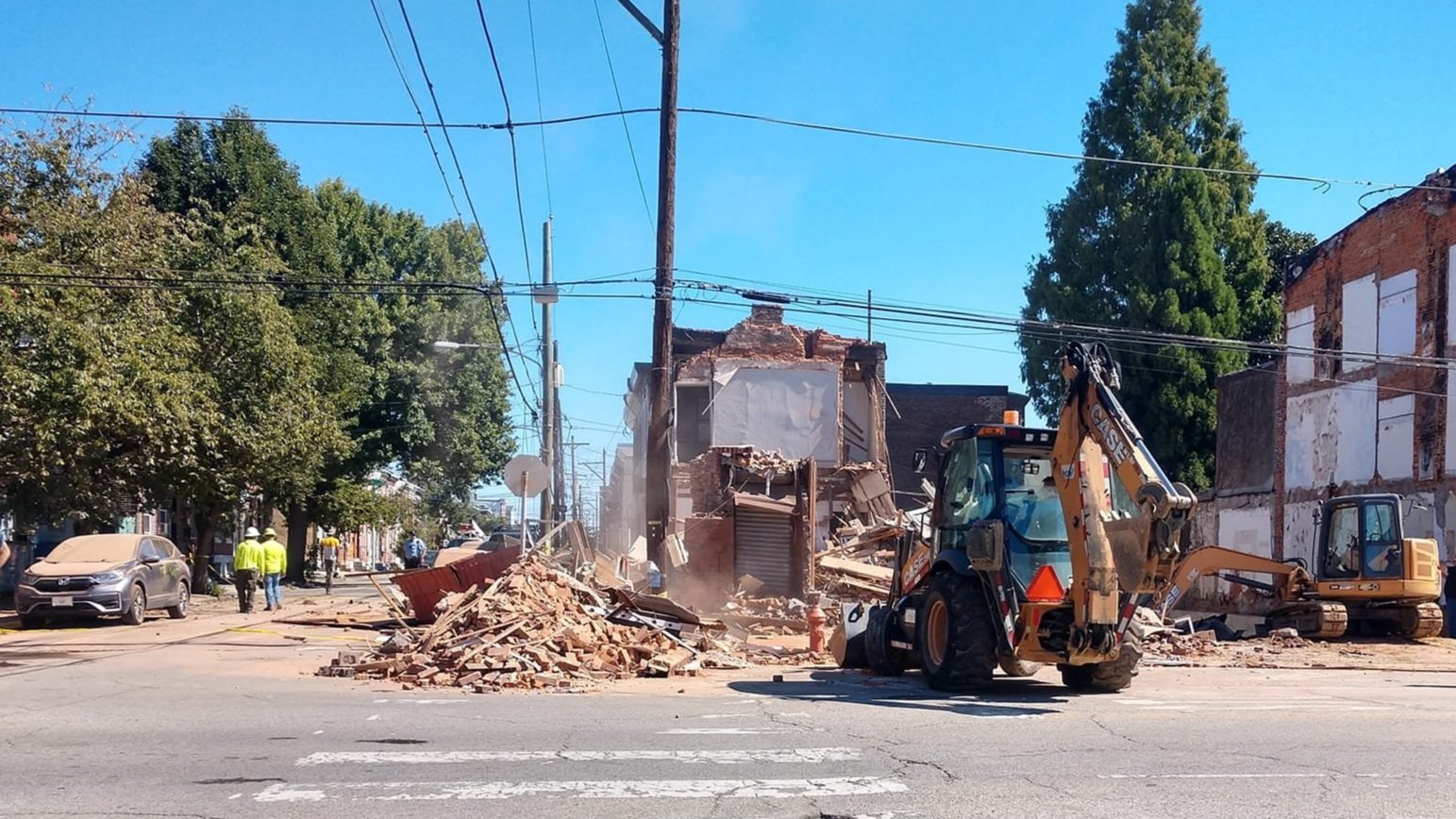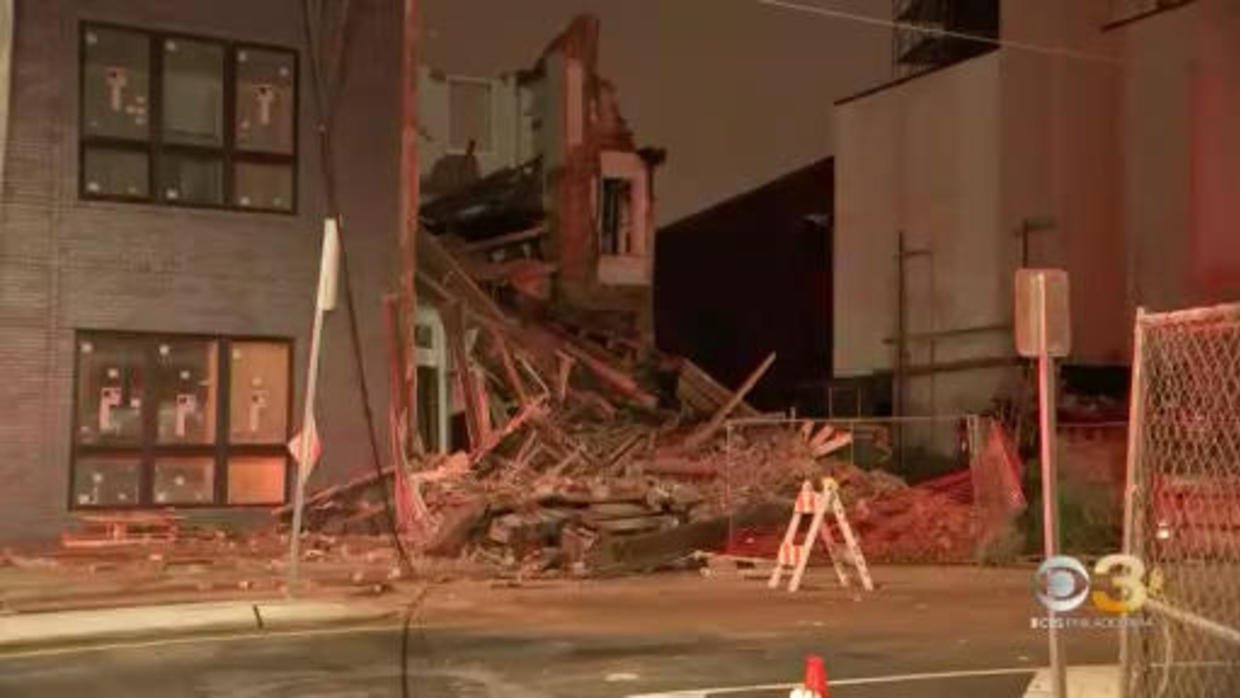
DEMAND DEVELOPER ACCOUNTABILITY
END CONSTRUCTION DESTRUCTION
PROTECT OUR COMMUNITIES
From the Unsafe Development Protest held on Friday, September 23rd at Philadelphia City Hall
Philadelphia is overrun with unsafe development, dangerous excavations, and damaging construction work. It is destroying our homes and our lives.
Our city considers damages by adjacent development to be a civil issue and provides us with no protections or support systems when our homes are destroyed or irreparably damaged by construction work. Damage that causes your home to be in violation of the building safety code becomes YOUR financial responsibility and burden.
Our most disadvantaged and disinvested communities have been suffering from this harm for decades as out-of-state investment and rampant gentrification and displacement drive families out of their lifelong neighborhoods. Homeowners and renters alike across Philadelphia are being forced to flee their homes and become refugees in their own neighborhoods.
In 2013 the Market Street Salvation Army Collapse shook the city.
10 years later, what has changed?
THE CITY MUST TAKE IMMEDIATE ACTION NOW.

DEMANDS
1. Draft and pass legislation that establishes a developer’s license to follow the individual developer from LLC to LLC, holding them accountable for their history of damages, violations, and repeat offenses.
2. Fund resources and free programs that provide legal services and aid to construction damage victims.
3. Create a city-wide case management structure dedicated to receiving, guiding, and tracking resident construction damage cases.
4. Draft and pass legislation requiring a demolition review before new permits can be approved.
5. Immediately require all developers to include all affected properties next to their project on their insurance coverage.
.
Why these demands:
1. Draft and pass legislation that establishes a developer’s license to follow the individual developer from LLC to LLC, holding them accountable for their history of damages, violations, and repeat offenses.
Developers must be held accountable for their cumulative history of damages, violations, and repeat offenses committed across every LLC and project they own. Developers who make hiring decisions based on the most possible return on investment, and sacrifice quality, safety, and expertise for cheap labor, will continue to do so if there is no accountability at the top. We must disincentivize bad actors and revoke a developer’s right to continue building in our city if the damage they cause does not stop.
2. Fund resources and free programs that provide legal services and aid to construction damage victims.
Developers know that residents don’t have the resources to hire a legal team, and rarely know enough to represent or protect themselves. We are not zoning lawyers or property law attorneys. Residents need legal support and guidance both before, during, and after construction work begins next door. Aid organizations need funding to be able to provide things like (1) legal counsel to residents in crisis, (2) proactive services before any work next door begins (i.e. negotiating access agreements and safety precautions), and (3) engineer assessments of damages and recommendations for repairs.
3. Create a city-wide case management structure dedicated to receiving, guiding, and tracking resident construction damage cases.
Residents have been left to “figure out” how to get help from which city agency on their own and it is unacceptable. The city must take responsibility for the complex web of agencies and requirements that intersect with construction damage. We no longer can allow these problems to be inconsistently fielded by isolated individuals across agencies and district constituent service representatives. A centralized system for handling and reviewing all construction damage-related issues must be formed to manage the high volume of cases across every district and to track the data and frequency of harm that has destroyed countless neighbors’ homes, health, and financial stability. A city-wide case management structure will also eliminate hours-upon-hours of wasted time and inefficiency across all agencies that touch construction sites - saving the city labor and money.
4. Draft and pass legislation requiring a demolition review before new permits can be approved.
Many demolitions do not make sense when it comes to issues of safety, structural engineering concerns, and the ethical conservation of materials and resources. Philadelphia is a city full of row homes, 100-year-old factories, twin structures, and old infrastructure. Demolitions must be screened for necessity, potential damages to surrounding homes, and health and safety concerns for nearby residents.
5. Immediately require all developers to include all affected properties next to their project on their insurance coverage.
The vast majority of homeowners’ and renters’ insurance policies do not cover man-made causes of displacement or structural damages. If it wasn’t an earthquake that cracked the foundation, insurance companies are not likely to cover the cost of repairs. Attempting to require developers to cover the repairs or damages often requires drawn-out legal action that is out of reach for most victims. Requiring developers to put neighbors on their insurance incentivizes them to avoid damaging adjacent homes and to swiftly resolve damages before they are reported to their insurance provider to avoid increases to their policy premiums.
